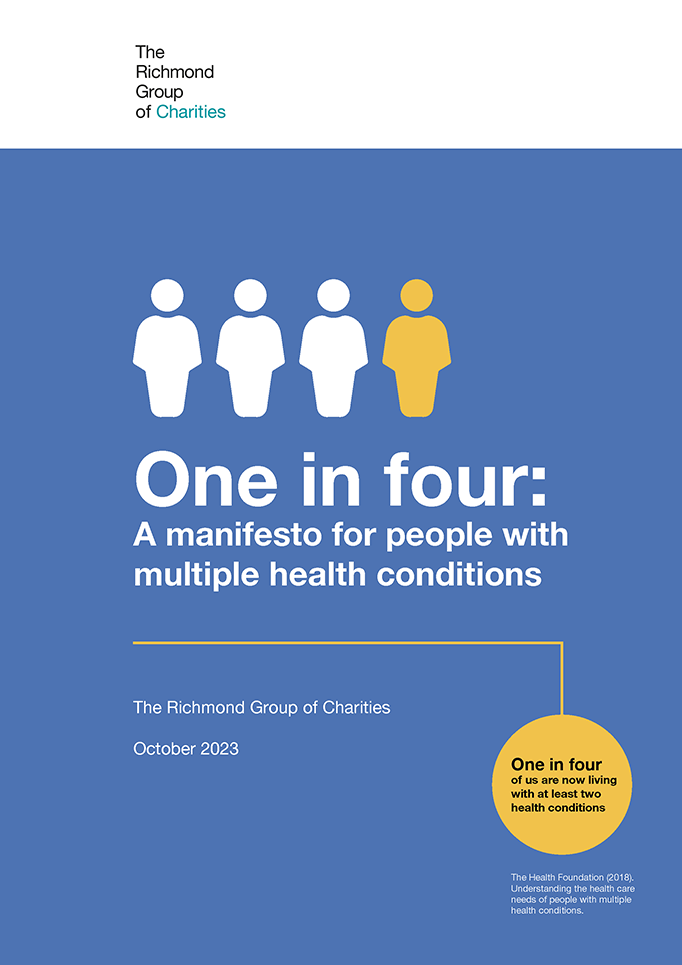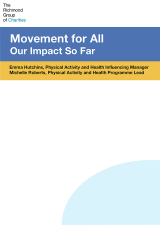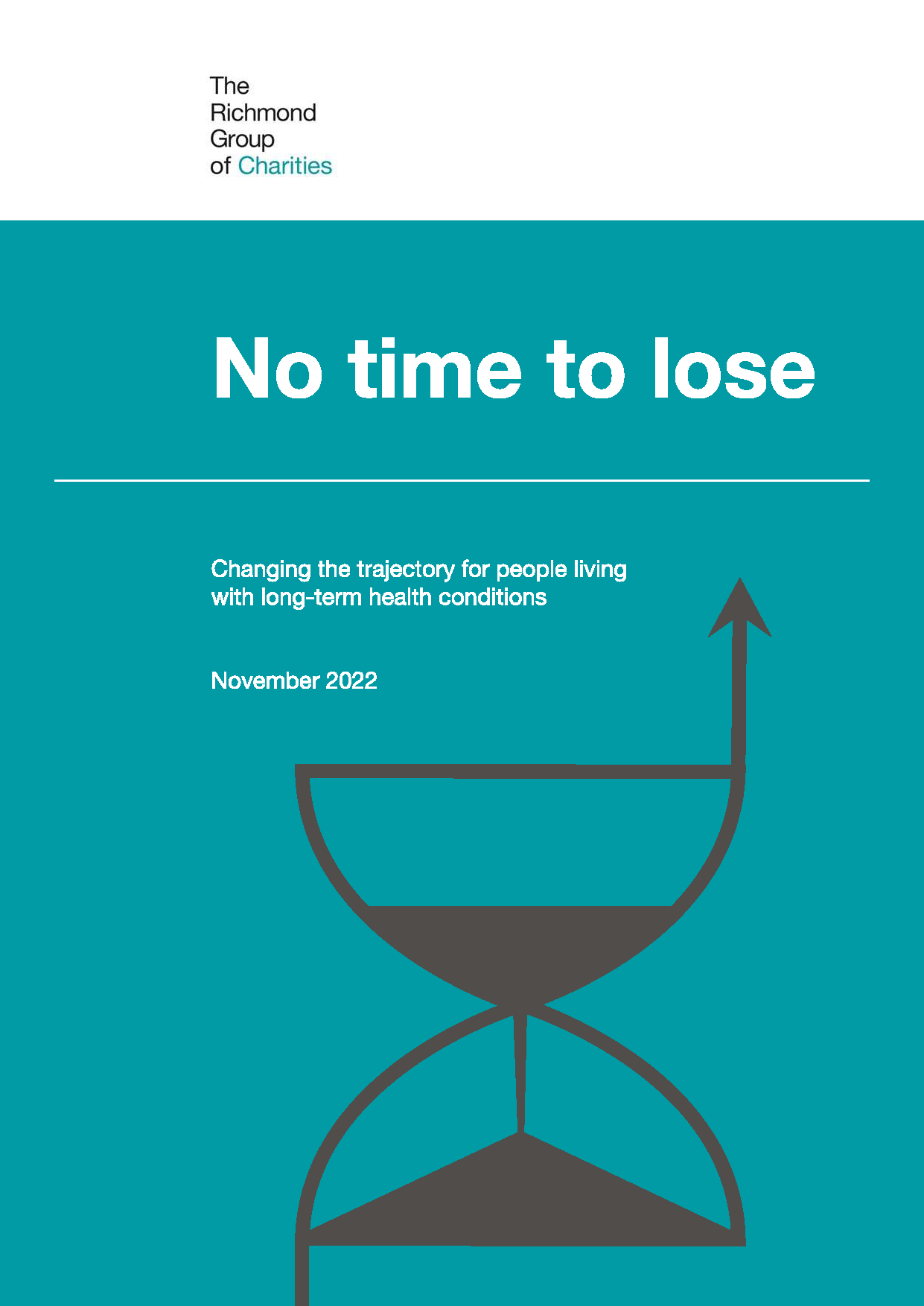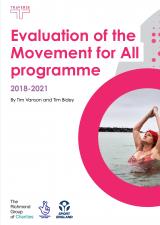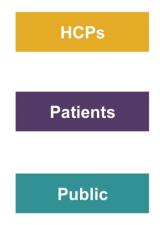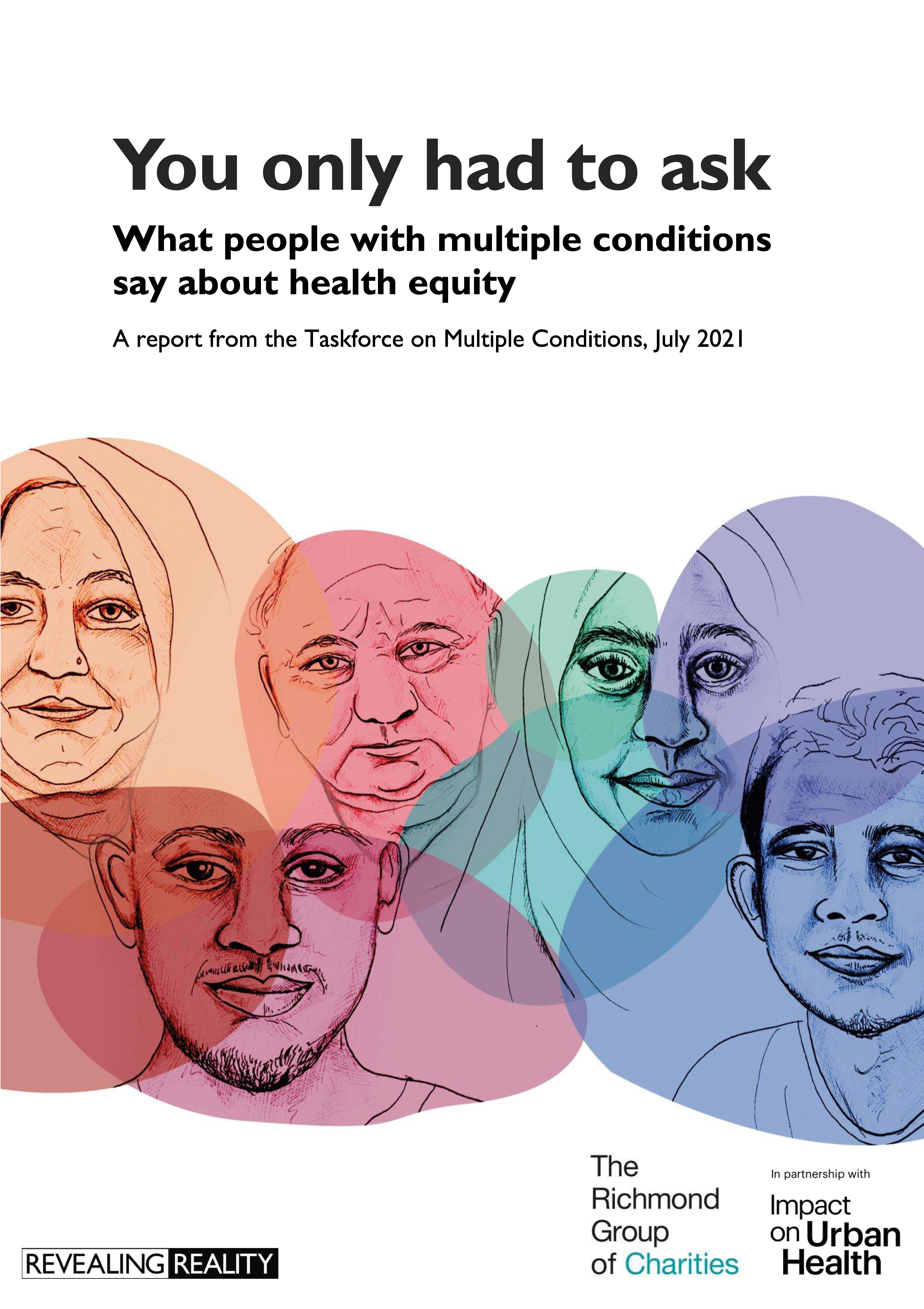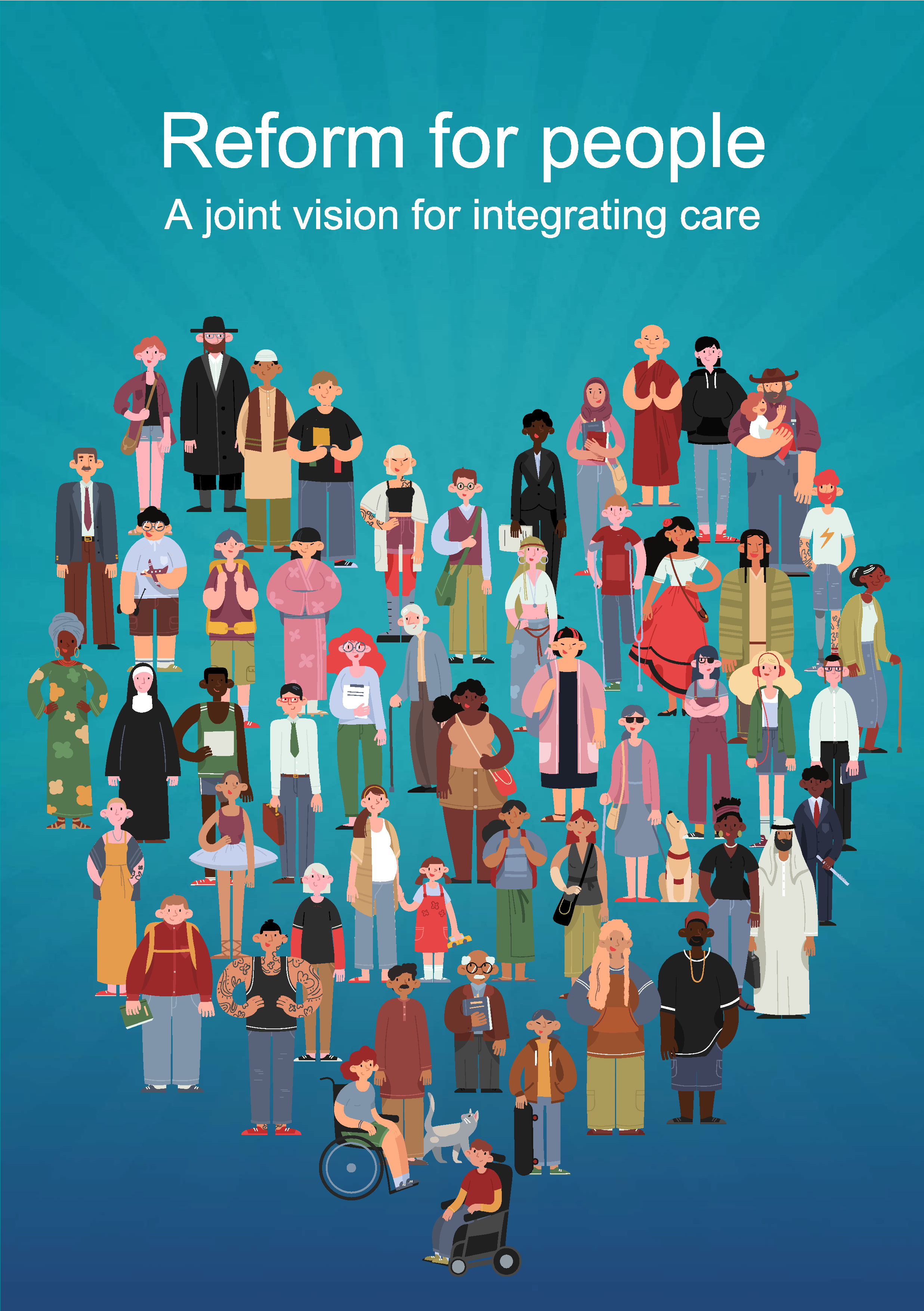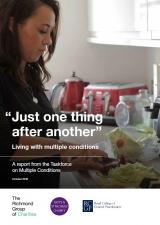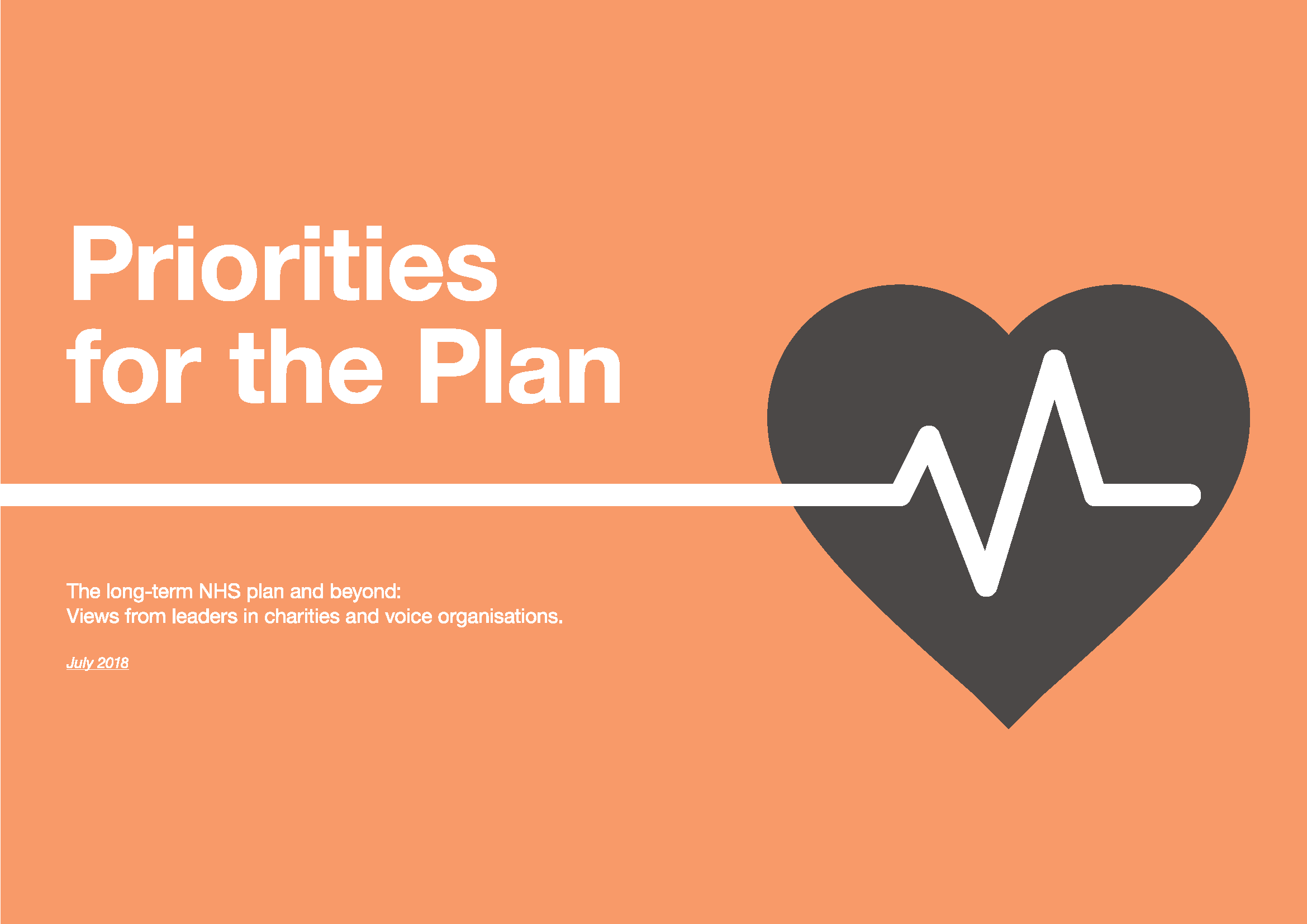Featured posts
One in four: A manifesto for people with multiple health conditions
Filter by subject
Millions more moving
The Richmond Group of Charities has published Millions more moving, a report informed by lived…
Movement for All: Our Impact So Far
Eighteen months into our role as a Sport England system partner, we have taken the…
One in four: A manifesto for people with multiple health conditions
The Richmond Group of Charities represents more that 15 million people living with long-term health…
No time to lose: changing the trajectory for people living with long-term health conditions
This report draws together data, insight and patient stories from The Richmond Group’s 12 member…
Movement for All Evaluation Report February 2022
With our programme evaluators, Traverse, we bring together learning from a number of intervention and…
How has Covid-19 shaped experiences and views of health and care? Phase 1
This report presents the findings from the first phase of The Richmond Group’s work with…
You only had to ask: What people with multiple conditions say about health equity
Marking the culmination of three years of the Taskforce on Mutliple Conditions work and representing…
Reform for people: a joint vision for integrating care
A joint vision laying out a shared ambition of what integrated care and improved ways…
How has Covid-19 shaped experiences and views of health and care? Phase 3
This report presents the findings from the final phase of The Richmond Group’s work with…
How Has Covid-19 shaped experiences and views of health and care? Phase 2
This report presents the findings from the second phase of The Richmond Group’s work with…
“Just one thing after another”: Living with multiple conditions
This report explores how it feels to live with multiple long-term health conditions and shares…
Priorities for the Plan
With the NHS approaching its 70th birthday and the Government preparing a long-term plan for…

